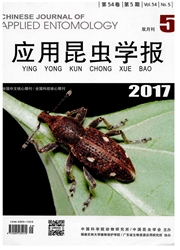

 中文摘要:
中文摘要:
热休克蛋白(heat shock proteins,HSPs)是生物体受到应激刺激时诱导产生的一组保守性蛋白,普遍存在于各种生物体中。近年来,果蝇Drosophila作为生命科学与人类疾病研究的重要模式生物,其热激蛋白的研究取得了许多新的进展。文章对果蝇热激蛋白的类别、热激蛋白基因的表达调控机制、热激蛋白的分子伴侣功能、调节细胞存亡和影响发育及寿命等相关生物学功能进行综述,并对热激蛋白在神经退行性疾病治疗中的应用前景作展望。
 英文摘要:
英文摘要:
Heat shock proteins(HSPs) are a group of highly-conservative proteins which are induced by stress stimulations and lie in all kinds of organisms.The study of heat shock proteins in Drosophila,which is an important model organism for understanding basic biological and human disease mechanisms,has made much new advance in recent years.This paper reviewed the category,the regulation of gene expression,and the biological functions of HSPs in Drosophila.HSPs can act as molecular chaperone,regulate the survival and apoptosis of the cell,and affect the development and longevity of Drosophila.HSPs may be applied in curing the neurodegenerative diseases in the future.
 同期刊论文项目
同期刊论文项目
 同项目期刊论文
同项目期刊论文
 期刊信息
期刊信息
